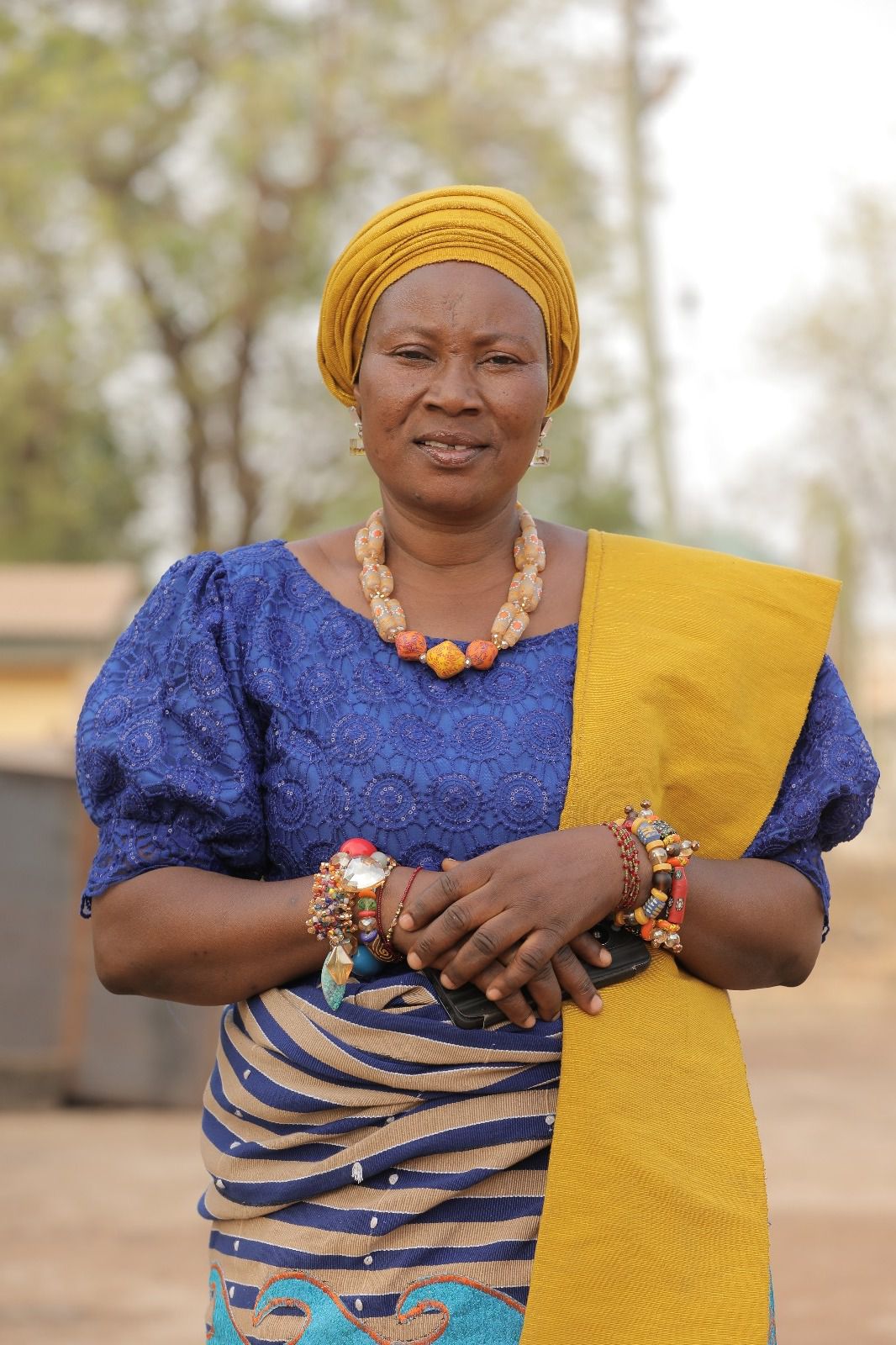
By David King BOISON(Dr) & Raphael Nyarkotey OBU(Prof)
Legal and regulatory challenges
- AML/CFT enforcement and surveillance gaps – Despite Nigeria’s advances under ISA 2024, effective anti–money?laundering and counter?financing?of?terrorism (AML/CFT) supervision of virtual?asset service providers (VASPs) remains a work in progress. The Financial Action Task Force (FATF) has placed virtual?asset regulation squarely within its Recommendation 15 mandate, yet a mid?2024 review found that 75percent of jurisdictions with materially important VASP activity still struggle to translate technical AML/CFT requirements into operational effectiveness (FSB, 2024).
Nigeria, recently re?rated by FATF’s follow?up evaluation for improved technical compliance on multiple recommendations—including those covering virtual assets—remains in “enhanced follow?up” status, signaling ongoing deficiencies in supervision and enforcement capacity (FATF, 2024; GIABA, 2024).
Until regulators can demonstrate sustained, risk?based inspections, transaction monitoring, and suspicious?activity reporting at scale, criminals will continue to exploit any regulatory cracks.

- Capacity constraints among regulators – Policymakers often underestimate the human?capital and technological demands of supervising crypto markets. FATF’s interpretative guidance emphasizes the need for specialized teams, blockchain?analytics tools, and continuous training to detect and disrupt illicit finance in tokenized environments (FATF, 2024). However, many African capital?market authorities lack dedicated budgets, skilled personnel, or legal mandates to deploy advanced surveillance systems. In Nigeria’s case, the SEC has scaled up recruitment of financial?crime analysts and partnered with private?sector analytics providers, but similar efforts in smaller jurisdictions frequently stall for lack of funding or legislative authority—a constraint that must be remedied if continental harmonization is to succeed.
- Fraud, scams, and market abuse – Unregulated and under?supervised crypto markets have been fertile ground for Ponzi schemes, romance?scam rings, and “high?yield” investment fraud. In April 2025, the Nigeria Tribune exposed the collapse of “CBEX” (CryptoBase Exchange), which lured thousands of investors with promised returns of over 20percent per month before vanishing—sparking calls for urgent EFCC investigations (Nigerian Tribune, 2025). More broadly, the Economic and Financial Crimes Commission (EFCC) has arrested 792 suspects in a nationwide sting on crypto?romance scams, underscoring the scale of organized fraud (Reuters, 2024). These episodes erode consumer trust, frustrate legitimate market participants, and highlight the imperative for swift enforcement actions backed by robust legal tools.
- Data privacy, digital identity, and KYC challenges – Effective regulation of digital assets hinges on reliable digital?identity frameworks and data?protection regimes. The U.S. Treasury’s 2024 Illicit Finance Strategy underscores that “regulatory and policy support for reliable digital identity solutions” is essential to enforcing KYC/AML requirements in emerging technologies (U.S. Treasury, 2024). In many African countries, however, national digital?ID programs remain incomplete, and data?protection laws are either nascent or weakly enforced. Without interoperable identity platforms and strong privacy safeguards, regulators cannot verify beneficial?ownership data or trace suspicious flows, creating systemic vulnerabilities. Addressing these gaps through complementary legislation—linking digital?ID infrastructure to financial?sector supervision—will be critical to making crypto regulation both effective and rights?respecting.
Building a continental framework for crypto regulation
- Role of the African Union and the AfCFTA Digital Trade Protocol – A truly harmonized crypto?regulatory regime in Africa must rest on two pillars: continental coordination and a unifying legal framework. In February 2024, African Union Ministers of Trade formally adopted the African Continental Free Trade Area (AfCFTA) Digital Trade Protocol (DTP), a comprehensive accord that addresses electronic payments, digital identities, consumer protection, and the facilitation of emerging technologies under a single, continent?wide rulebook (IISD, 2024; OECD, 2025).
In embedding provisions for cross?border digital?payment systems and electronic authentication, the DTP provides a natural home for regulated crypto corridors—ensuring that tokenized assets and stablecoins can flow seamlessly alongside traditional digital goods and services.
Aligning national crypto laws with the DTP’s principles of interoperability and non?discrimination would anchor regulatory certainty across 54 member states, reducing fragmentation and legal arbitrage.
- Harmonizing regional economic blocs: ECOWAS, EAC, and SADC – At the sub?regional level, existing payment?system harmonization initiatives offer valuable blueprints. The Pan?African Payment and Settlement System (PAPSS), launched in January 2022 by Afreximbank in partnership with the AfCFTA Secretariat, already connects banks and payment service providers across member markets—enabling instant, local?currency settlement over ISO 20022 rails (World Bank, 2019; Reuters, 2025). Within the West African Monetary Zone (WAMZ), PAPSS pilots involving The Gambia, Ghana, Guinea, Liberia, Nigeria, and Sierra Leone have demonstrated that system?wide net settlement can cut transaction costs by up to 85percent (World Bank, 2019).
Complementing this work, the ECOWAS Supplementary Act on Electronic Transactions establishes unified rules for e?commerce and data protection across the bloc’s 15 member states (CCDCOE, 2019).
Extending these harmonization efforts to include licensing and supervision of virtual?asset service providers (VASPs) would empower ECOWAS regulators to cooperate on cross?border inspections, share AML/CFT intelligence, and jointly enforce consumer?protection standards.
- Pan?African Digital?Asset Passport – Just as the European Markets in Crypto?Assets Regulation (MiCA) grants passporting rights to crypto?asset service providers across all EU member states, Africa could establish its own Digital?Asset Passport, underpinned by AfCFTA and Afreximbank governance. Under MiCA, a VASP licensed in any EU jurisdiction can offer services Europe?wide without further approvals—a mechanism that has already attracted institutional token issuers to Luxembourg and Ireland (European Parliament & Council of the European Union, 2023). Adopting a similar system in Africa would allow a VASP authorized in Nigeria, South Africa, or Mauritius to operate seamlessly in all partner states, fostering competition, deepening liquidity pools, and reducing barriers for pan?continental fintech startups.
- Lessons from beyond Africa: EU MiCA and ASEAN digital harmonization – Two global precedents illuminate the path forward. First, MiCA’s phased approach—regulating asset?referenced tokens and e?money tokens from June 2024, followed by broader crypto?asset service provisions in December 2024—demonstrates how a unified rulebook can drive market integrity and consumer confidence while preserving innovation (European Parliament & Council of the European Union, 2023). Second, the ASEAN Digital Economy Framework Agreement (DEFA) offers a model for multi?jurisdictional coordination on digital trade, projecting that harmonized digital?economy rules could multiply member states’ digital?GDP by up to 4–7 times by 2030 (ASEAN Secretariat, 2024). In blending MiCA?style passporting with DEFA?inspired digital?trade protocols, Africa can craft a regulatory architecture that balances unified standards with sufficient flexibility to adapt to evolving token?economy use cases.
Strategic recommendations for African countries
- Legislative roadmap for enacting crypto laws – African nations without comprehensive crypto?asset legislation should begin by adopting a clear legal framework grounded in the principle of “same activity, same risk, same regulation,” as articulated by the IMF’s Elements of Effective Policies for Crypto Assets (IMF, 2023). This entails defining digital tokens—whether payment tokens, security tokens, or e?money tokens—within existing securities and payment?services statutes, and prescribing governance, capital, and conduct requirements for all virtual?asset service providers (VASPs).
Legislators should incorporate robust AML/CFT provisions aligned with FATF Recommendation 15, stipulating risk?based customer due diligence, transaction?monitoring obligations, and suspicious?activity reporting.
In embedding these elements into a standalone crypto?assets law or through targeted amendments to investment and banking acts, countries can swiftly operationalize licensing regimes, investor?protection standards, and enforcement powers similar to those Nigeria pioneered under ISA 2024 (IMF, 2023).
- Strengthening regional coordination mechanisms – No single country can fully realize the benefits of digital?asset markets in isolation. Regional blocs such as ECOWAS, the East African Community (EAC), and the Southern African Development Community (SADC) should build on existing payment?system integration platforms. The Pan?African Payment and Settlement System (PAPSS) has already demonstrated cost savings of up to 85percent on cross?border transactions among pilot members (World Bank, 2019).
In extending PAPSS to encompass licensed VASPs and tokenized?asset transfers, regional regulators can facilitate seamless, local?currency settlement of digital assets.
At the same time, aligning crypto?asset rules with the AfCFTA Digital Trade Protocol—which mandates electronic?authentication standards, non?discriminatory treatment of digital services, and data?protection safeguards—will provide a unifying legal foundation across all 54 members (IISD, 2024).
Joint supervisory colleges, mutual?recognition agreements, and shared AML/CFT intelligence platforms will further cement this coordination.
- Fostering public?private dialogue and industry engagement – Effective policy cannot be designed behind closed doors. Establishing multi?stakeholder fintech councils—comprising central banks, securities regulators, telecom operators, blockchain?analytics firms, and consumer?rights groups—enables real?time feedback on regulatory sandboxes, pilot programs, and emerging risks. The IMF emphasizes that such public?private dialogue is “essential to balance innovation with consumer protection” and to refine legislative drafts before enactment (IMF, 2023). Regularly convened innovation steering committees can also collaborate on technical standards for smart?contract audits, cloud?infrastructure security, and cross?border KYC interoperability, ensuring that regulations keep pace with rapidly evolving blockchain use cases.
- Expanding regulatory sandboxes and innovation hubs – Regulatory sandboxes offer a controlled space for testing new products under regulator supervision. Ghana’s Regulatory and Innovation Sandbox, launched in February 2023, prioritized blockchain?based remittance solutions, e?KYC platforms, and digital?identity pilots, admitting its first cohort of fintech innovators in under a month (Moody’s, 2023). Similarly, South Africa’s FSCA Innovation Office and Nigeria’s SEC sandbox have enabled dozens of tokenized?asset experiments with graduated compliance relief (FSCA, 2024). African regulators should scale these initiatives, offering both cohort and rolling?application models, clear testing?exit criteria, and mechanisms for transitioning successful pilots into fully licensed operations. By embedding “sandbox?to?scale” pathways into national fintech strategies, regulators can foster homegrown innovation while preserving financial stability.
- Exploring state?issued Stablecoins and CBDCs – Finally, African central banks should evaluate issuing stablecoins or retail CBDCs as complements to private crypto markets. The eNaira—launched by the Central Bank of Nigeria in October 2021 as Africa’s first CBDC—has seen over 13 million wallet registrations and ?22 billion in transactions within its first 18 months, illustrating consumer appetite for digital legal tender backed by regulatory trust (IMF, 2021; Kaaru, 2024). The Bank of Ghana’s e?Cedi pilot similarly recorded GH¢473 million in 96,000 transactions, including offline settlements for rural users (RegTech Africa, 2024). When designed with interoperable APIs, strong privacy safeguards, and offline?capable wallets, state?issued digital currencies can coexist with private stablecoins, anchoring monetary sovereignty while expanding financial access. To guide design choices, central banks should draw on BIS research on CBDC core features—such as resilience, privacy, and inclusion—and collaborate with digital?identity authorities to ensure robust KYC integration (BIS, 2021).
Conclusion
What can Africa learn from Nigeria’s bold leap into regulated digital?asset markets? The Investments and Securities Act 2024 demonstrates that formally recognizing cryptocurrencies and tokenized securities under a capital?markets framework is not only possible but also transformative.
In equating virtual?asset exchanges and custodians with traditional securities intermediaries, Nigeria has provided a replicable model for licensing, investor protection, and systemic?risk management (Aluko?Oyebode, 2025; Chambers, 2025).
This legislative clarity has already begun to catalyze institutional participation, attract fintech innovation, and bolster public confidence—proving that comprehensive crypto regulation lays the groundwork for sustainable market growth rather than stifling it (BlackRock, 2025).
Yet, can a single country’s success suffice to propel a continent forward? The answer is no. Africa’s digital?asset potential hinges on harmonized policies that transcend national borders. The AfCFTA Digital Trade Protocol and regional platforms like PAPSS offer the legal and technical scaffolding for pan?African passporting of tokenized assets and cross?border supervision (IISD, 2024; World Bank, 2019).
In adopting a unified Digital?Asset Passport—mirroring the EU’s MiCA regime—African nations can cultivate deep liquidity pools, foster competition among VASPs, and reduce regulatory arbitrage (European Parliament & Council of the European Union, 2023).
Such coordination will be essential to ensuring that digital?asset markets serve the needs of smallholder farmers in Ghana as effectively as they do tech?entrepreneurs in Nairobi or retail savers in Cape Town.
How do we move from vision to reality? The path forward demands proactive collaboration among governments, regulators, and private stakeholders. Establishing multi?stakeholder fintech councils and expanding regulatory sandboxes will ensure that policy evolves in step with innovation (IMF, 2023).
Simultaneously, deploying state?issued stablecoins or CBDCs—coupled with interoperable digital?ID systems—can anchor financial sovereignty while extending access to the unbanked (BIS, 2021; RegTech Africa, 2024). Ultimately, the lesson of ISA 2024 is clear: when African regulators embrace digital?asset regulation with rigor, clarity, and coordination, they unlock a new era of financial inclusion, economic resilience, and technological leadership across the continent.
>>>Dr David King Boison is a Maritime & Port Expert | AI Consultant | Senior Research Fellow CIMAG| CEO Knowledge Web Center. He can be reached via [email protected]
>>>Prof. Raphael Nyarkotey Obu is a Professor of Naturopathy | Barrister & Solicitor (The Gambia Bar)| Chartered Health Economist| President, Nyarkotey College of Holistic Medicine & Technology. He can be reached via [email protected]
The post Digital currency regulation in Africa: Learning from Nigeria’s Crypto Securities Act (2) appeared first on The Business & Financial Times.
Read Full Story










Facebook
Twitter
Pinterest
Instagram
Google+
YouTube
LinkedIn
RSS